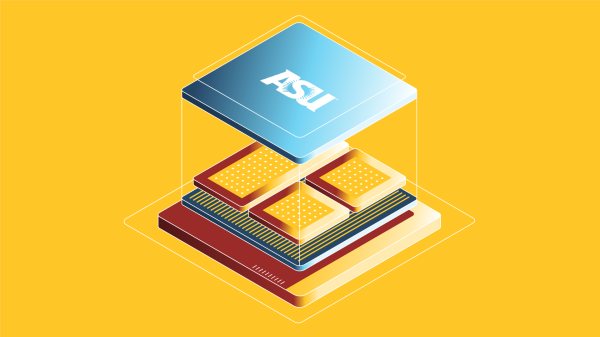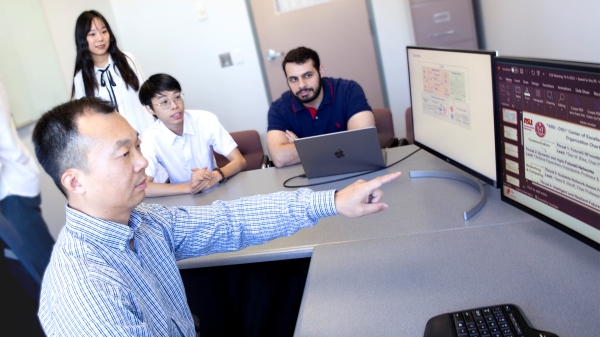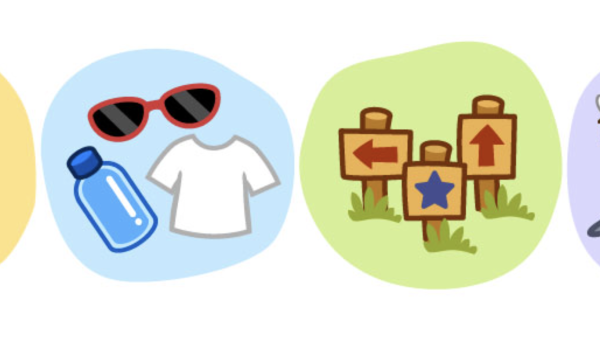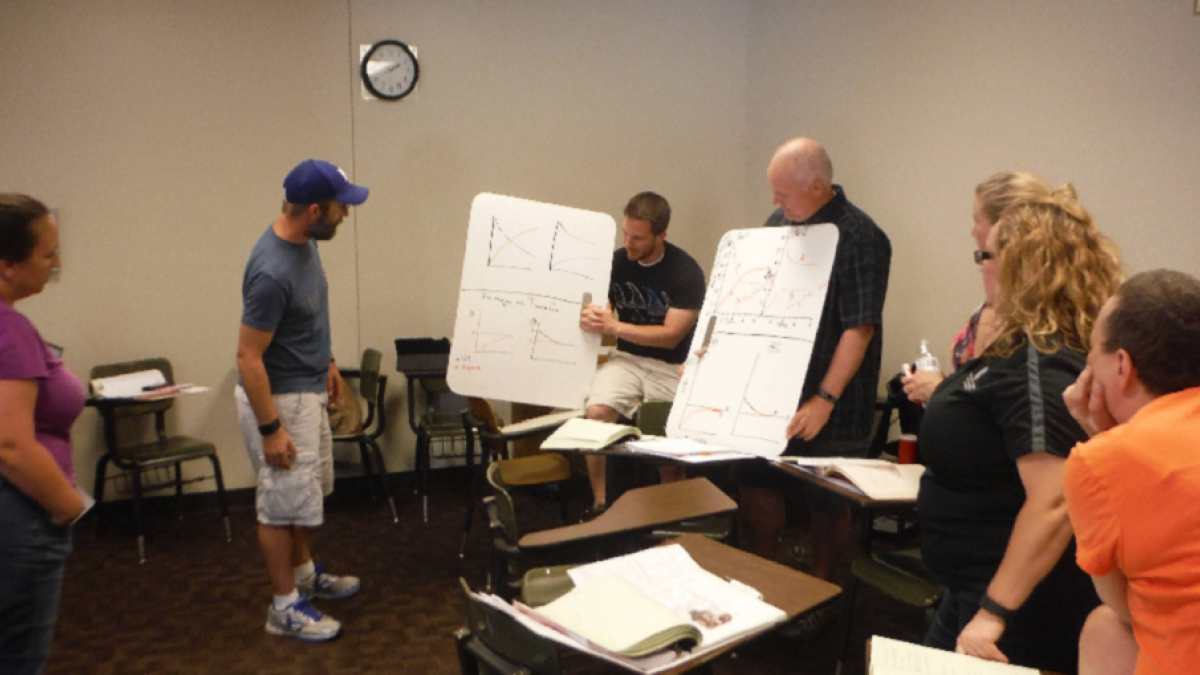Seventy high school physics and chemistry teachers from around the world took seven graduate-level courses at Arizona State University over the summer to enhance their teaching capabilities.
The graduate-level courses, including modeling instruction workshops, take a hands-on approach to instruction, helping teachers integrate physics or chemistry with technology, engineering and math to teach students how to design experiments, analyze data and defend conclusions.
Teachers can implement these techniques to overcome traditional classroom hurdles, such as student passivity.
“I can already tell the difference my first day back,” said Isabel Pak, a chemistry teacher at Chandler High School.
The Department of Physics modeling instruction program in the College of Liberal Arts and Sciences, the only one of its kind in Arizona, encourages lifelong learning for teachers and students. Nearly 1,000 teachers have taken the workshops, which directly benefit 100,000 students annually in school districts across the state.
Beyond improving student engagement, the program addresses the shortage of physics teachers in Arizona.
Seventy-five percent of the 180 physics teachers in Phoenix don’t hold a physics degree. Often, schools are forced to retrain teachers from other subject areas to teach physics, or go without.
The shortage of high school physics courses has a direct impact on the number of students likely to pursue science, technology, engineering and math majors in college. According to research at the University of South Florida, Harvard and the TIMSS Center at Boston College, physics is the chief pathway to STEM majors and careers.
Students who receive hands-on instruction in high school are three times more likely to earn a STEM degree, research from the University of South Florida and the TIMSS Center shows.
It’s a challenge that Jane Jackson, the program’s co-director, sees as the essential mission of the program.
“The ASU modeling instruction program is crucial. Arizona’s economic health depends on a strong K-12 education that includes robust physics courses,” Jackson said. “Physics is STEM. Critical and creative thinking are essential to meet our looming 21st-century challenges.”
Since 2003, the modeling instruction program has helped 70 teachers earn master’s degrees in natural sciences.
Two major donors, Boeing and Salt River Project, provide partial tuition scholarships and programmatic support to help make it affordable for teachers to advance their education and improve their teaching capabilities.
For many of these teachers, the ASU modeling instruction program is a lifeline for their careers.
“I have been teaching physics and mathematics now for over 20 years, and was fortunate to be trained in modeling instruction as a pre-service teacher in 1993,” said Kelli Gamez Warble, a teacher-in-residence in the Department of Physics at ASU. “If not for modeling pedagogy and its supportive community of instructors, I would likely have left teaching within my first five years.”
Learn more about the ASU modeling instruction program at http://modeling.asu.edu.
More Science and technology

Advanced packaging the next big thing in semiconductors — and no, we're not talking about boxes
Microchips are hot. The tiny bits of silicon are integral to 21st-century life because they power the smartphones we rely on,…

Securing the wireless spectrum
The number of devices using wireless communications networks for telephone calls, texting, data and more has grown from 336…

New interactive game educates children on heat safety
Ask A Biologist, a long-running K–12 educational outreach effort by the School of Life Sciences at Arizona State University, has…
